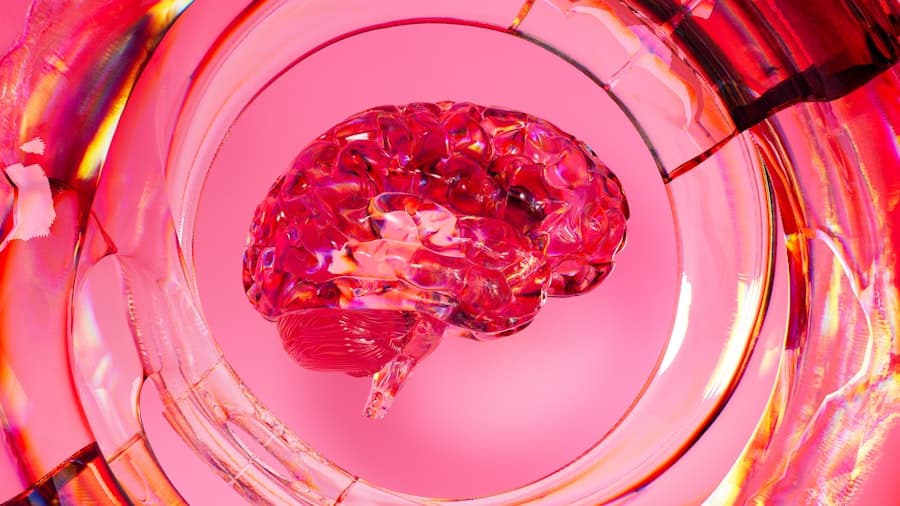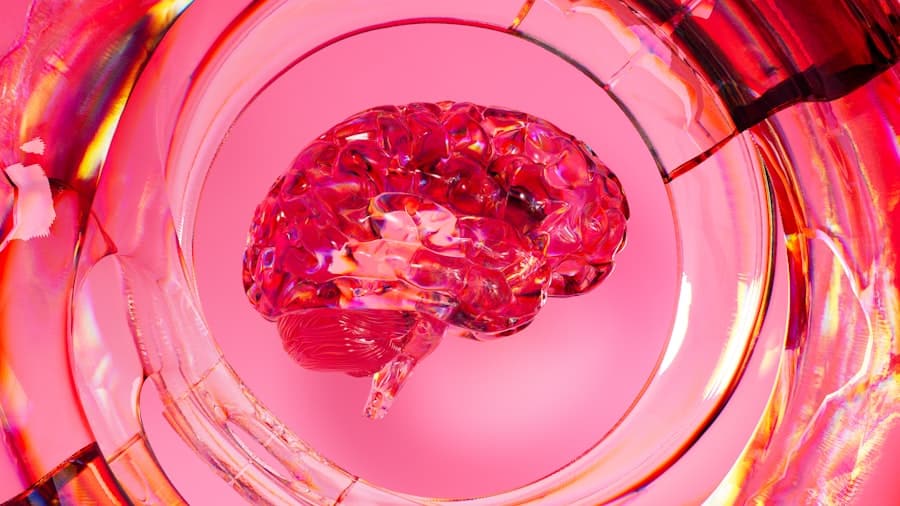Artificial Intelligence (AI) has emerged as a transformative force across various fields, and its integration into brain research and neurological care is particularly noteworthy. The human brain, with its intricate networks and complex functions, has long been a subject of fascination and study. However, the sheer volume of data generated from brain research, coupled with the multifaceted nature of neurological disorders, presents significant challenges for traditional research methodologies.
AI offers innovative solutions to these challenges, enabling researchers and clinicians to analyze vast datasets, identify patterns, and derive insights that were previously unattainable. This intersection of technology and neuroscience not only enhances our understanding of brain function but also paves the way for more effective treatments for neurological conditions. The application of AI in this domain is not merely a trend; it represents a paradigm shift in how we approach brain health.
By leveraging machine learning algorithms, neural networks, and data analytics, researchers can delve deeper into the complexities of the brain. This technological advancement is particularly crucial in an era where neurological disorders such as Alzheimer’s disease, Parkinson’s disease, and multiple sclerosis are on the rise. As the global population ages, the demand for innovative solutions in neurological care becomes increasingly urgent.
AI stands at the forefront of this evolution, promising to enhance diagnostic accuracy, personalize treatment plans, and ultimately improve patient outcomes.
Key Takeaways
- AI enhances understanding of brain function and neurological disorders through advanced data analysis.
- It improves diagnosis and treatment accuracy for various neurological conditions.
- Cutting-edge AI technologies advance brain imaging and analytical capabilities.
- Ethical challenges must be addressed to ensure responsible AI use in brain research.
- Collaboration between AI specialists and neuroscientists drives innovation and future breakthroughs.
The Role of AI in Understanding Brain Function and Disorders
AI plays a pivotal role in advancing our understanding of brain function and the underlying mechanisms of various neurological disorders. One of the most significant contributions of AI is its ability to process and analyze large datasets generated from neuroimaging studies, genetic research, and clinical trials. For instance, machine learning algorithms can sift through thousands of MRI scans to identify subtle changes in brain structure that may indicate the early stages of neurodegenerative diseases.
This capability allows researchers to detect abnormalities that might be overlooked by human observers, thereby facilitating earlier diagnosis and intervention. Moreover, AI can assist in unraveling the complexities of brain connectivity and function. By employing techniques such as functional MRI (fMRI) analysis, AI algorithms can map brain activity patterns associated with specific cognitive tasks or emotional responses.
This not only enhances our understanding of normal brain function but also sheds light on how these processes are disrupted in various disorders. For example, studies utilizing AI have revealed distinct neural signatures associated with schizophrenia, providing insights into its pathophysiology and potential therapeutic targets. The ability to correlate brain activity with behavioral outcomes through AI-driven analysis represents a significant leap forward in neuroscience.
AI Applications in Diagnosing and Treating Neurological Conditions

The diagnostic capabilities of AI have revolutionized the approach to neurological conditions, enabling more accurate and timely identification of disorders. Traditional diagnostic methods often rely on subjective assessments and can be prone to error. In contrast, AI algorithms can analyze clinical data, imaging results, and even genetic information to provide a more comprehensive view of a patient’s condition.
For instance, deep learning models have been developed to classify different types of brain tumors based on imaging data with remarkable accuracy, often surpassing human radiologists in performance. In addition to diagnosis, AI is also making strides in the treatment of neurological conditions. Personalized medicine is becoming increasingly feasible through the use of AI algorithms that analyze patient data to tailor treatment plans.
For example, in epilepsy management, AI can predict seizure occurrences by analyzing patterns in patient data collected from wearable devices. This predictive capability allows for timely interventions that can significantly improve quality of life for patients. Furthermore, AI-driven platforms are being developed to assist clinicians in selecting the most effective medications based on individual patient profiles, thereby minimizing trial-and-error approaches that can delay treatment.
Advancements in AI Technology for Brain Imaging and Analysis
Recent advancements in AI technology have significantly enhanced brain imaging and analysis techniques, leading to more precise assessments of neurological conditions. One notable development is the use of convolutional neural networks (CNNs) for image analysis. These deep learning models excel at recognizing patterns within complex datasets, making them particularly well-suited for interpreting neuroimaging data.
For example, CNNs have been employed to detect early signs of Alzheimer’s disease by analyzing structural MRI scans for atrophy patterns that correlate with cognitive decline. Moreover, AI technologies are facilitating real-time analysis of brain activity through techniques such as electroencephalography (EEG) and magnetoencephalography (MEG). These methods capture dynamic changes in brain function, and AI algorithms can process this data instantaneously to provide insights into cognitive processes or identify abnormal activity associated with conditions like epilepsy or depression.
The ability to analyze brain activity in real-time opens new avenues for understanding neural dynamics and developing targeted interventions.
Ethical Considerations and Challenges in Using AI in Brain Research
While the integration of AI into brain research holds immense promise, it also raises several ethical considerations and challenges that must be addressed. One primary concern is the issue of data privacy and security. The use of sensitive patient data for training AI models necessitates stringent measures to protect personal information from breaches or misuse.
Researchers must navigate complex regulations surrounding data sharing while ensuring that patient confidentiality is maintained. Another ethical challenge lies in the potential for bias within AI algorithms.
For instance, if an AI model trained predominantly on data from one demographic is applied to a broader population, it may fail to accurately diagnose or treat individuals from underrepresented backgrounds. Addressing these biases requires ongoing vigilance and collaboration between technologists and ethicists to ensure equitable outcomes in neurological care.
Collaborations between AI Experts and Neuroscientists

The successful integration of AI into brain research hinges on effective collaborations between AI experts and neuroscientists. These interdisciplinary partnerships are essential for bridging the gap between technological innovation and clinical application. Neuroscientists bring invaluable domain knowledge about brain function and disorders, while AI specialists contribute expertise in machine learning algorithms and data analysis techniques.
Together, they can develop tailored solutions that address specific challenges within the field. One exemplary collaboration is seen in projects aimed at understanding neurodegenerative diseases like Alzheimer’s. By combining neuroimaging data with advanced machine learning techniques, researchers can identify biomarkers that predict disease progression more accurately than traditional methods alone.
Such collaborations not only enhance research outcomes but also foster an environment where innovative ideas can flourish, ultimately leading to breakthroughs that benefit patients.
Future Prospects and Impacts of AI in Brain Research and Neurological Care
The future prospects for AI in brain research and neurological care are both exciting and expansive. As technology continues to evolve, we can anticipate even more sophisticated algorithms capable of analyzing complex datasets with unprecedented accuracy.
Moreover, as personalized medicine becomes increasingly prevalent, AI will play a crucial role in tailoring interventions to individual patients based on their unique genetic makeup and lifestyle factors. This shift towards precision medicine has the potential to revolutionize treatment approaches for neurological disorders, moving away from one-size-fits-all strategies towards more effective, individualized care plans. The impact of AI on public health cannot be overstated either; as diagnostic tools become more accessible and accurate, early detection of neurological conditions will likely improve significantly.
This could lead to better management strategies that not only enhance patient outcomes but also reduce healthcare costs associated with late-stage interventions.
The Potential of AI to Revolutionize Brain Health and Treatment
The integration of artificial intelligence into brain research and neurological care represents a groundbreaking advancement with the potential to transform our understanding of the human brain and improve patient outcomes dramatically. By harnessing the power of machine learning algorithms and advanced data analytics, researchers are uncovering new insights into brain function while developing innovative diagnostic tools and treatment strategies tailored to individual needs. As we continue to navigate the ethical challenges associated with this technology and foster collaborations between diverse fields, the future holds immense promise for leveraging AI to enhance brain health.
The ongoing evolution of this interdisciplinary approach will undoubtedly lead to significant breakthroughs that not only advance scientific knowledge but also improve the quality of life for millions affected by neurological disorders worldwide.
In the realm of technological advancements, the intersection of artificial intelligence and healthcare is becoming increasingly significant, particularly in brain research and neurological care. For those interested in the broader implications of technology in various fields, you might find the article on the best paying jobs in tech for 2023 insightful. It highlights how AI is shaping career opportunities and the future of work in the tech industry. You can read more about it in this article: Discover the Best Paying Jobs in Tech 2023.
FAQs
What is the role of AI in brain research?
AI helps analyze complex brain data, identify patterns, and accelerate discoveries in neuroscience by processing large datasets more efficiently than traditional methods.
How is AI used in neurological care?
AI assists in diagnosing neurological disorders, predicting disease progression, personalizing treatment plans, and monitoring patient outcomes through advanced algorithms and machine learning models.
Can AI improve the accuracy of brain disorder diagnoses?
Yes, AI can enhance diagnostic accuracy by analyzing imaging data, genetic information, and clinical records to detect subtle signs of neurological conditions that may be missed by human evaluation alone.
What types of neurological conditions benefit from AI applications?
Conditions such as Alzheimer’s disease, Parkinson’s disease, epilepsy, stroke, and multiple sclerosis are among those where AI is increasingly applied for early detection, treatment optimization, and monitoring.
Are there any ethical concerns with using AI in brain research and care?
Yes, ethical concerns include data privacy, informed consent, potential biases in AI algorithms, and the need for transparency and accountability in AI-driven decisions affecting patient care.
How does AI contribute to personalized medicine in neurology?
AI analyzes individual patient data to tailor treatments based on genetic, environmental, and lifestyle factors, improving the effectiveness and reducing side effects of neurological therapies.
What are the challenges of integrating AI into neurological healthcare?
Challenges include data quality and availability, the complexity of brain disorders, regulatory approvals, clinician training, and ensuring AI systems are interpretable and reliable.
Is AI expected to replace neurologists in the future?
No, AI is designed to assist neurologists by providing decision support and enhancing diagnostic and treatment capabilities, not to replace the expertise and judgment of medical professionals.
How is AI advancing brain imaging techniques?
AI improves brain imaging by enhancing image resolution, automating image analysis, detecting abnormalities earlier, and enabling real-time monitoring of brain activity.
What future developments are anticipated in AI for brain research and neurological care?
Future developments include more sophisticated predictive models, integration of multimodal data, real-time brain-computer interfaces, and AI-driven drug discovery targeting neurological diseases.

